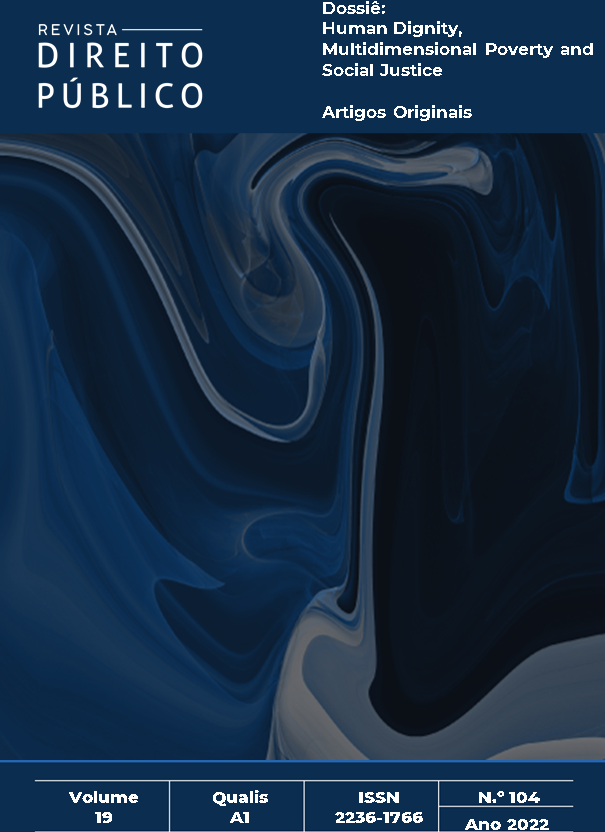Racially stratified legal effectiveness of integral protection
an analysis of obstacles to adequate fruition of childhood and adolescence law in Brazil in 2019 and 2020
DOI:
https://doi.org/10.11117/rdp.v19i104.6731Abstract
The paper carries out an empirical analysis of aspects of childhood and adolescence law, not however informed by a generic approach to legal efficacy pertaining to an abstract universal subject, but rather with a racialized approach to legal efficacy, taking into account racial cleavages. The seeks to answer whether, and in what degree, racial strata are relevant to the fruition of the right to childhood and adolescence through variables which relate to aspects that undermine integral protection, such as: homicides, deaths by incidents, deaths caused by accidental firearm discharges, deaths of persons under one year of age, low-birth weight, notifications of neglect and abandonment, of physical and sexual violence; of sexual harassment and exploitation against children and adolescents, and of child pornography. The methodology is quantitative in nature and focused on descriptive statistics. The research timespan encompasses the years of 2019 and 2020, and the data is referred to Brazil. The main finding is that race/color of children and adolescents mattered to the fruition of the right to integral protection. Better levels of fruition corresponded to the white stratum of race/color, while black and indigenous strata accounted for worse positioning. Another important finding is that homicides of persons under 19 years old and deaths caused by accidental firearm discharges were the most race-sensitive variables, while low-birth weight had the lowest racial bias among the variables encompassed in the research. The results challenge characterizations of de-racialized childhood and adolescence in Brazil.
Downloads
Published
How to Cite
Issue
Section
License
Copyright (c) 2023 Direito Público

This work is licensed under a Creative Commons Attribution-NonCommercial 4.0 International License.
O(s)/A(s) autores(as) dos manuscritos submetidos concorda(m) com as regras a seguir:
1) Todos os autores e autoras participaram do trabalho, são responsáveis pelas ideias e conceitos nele emitidos e atestam sua conformidade com os princípios éticos exigidos.
2) Todos os autores e autoras concordam com a forma final do trabalho e em ceder os direitos para publicação nos canais de publicação da Escola de Direito do IDP.
3) Todos os autores e autoras informam que o manuscrito é de sua autoria e assumem a responsabilidade pelo trabalho, declarando que a obra a ser publicada não infringe quaisquer direitos de propriedade intelectual de terceiros.
3.1) Em caso de submissão simultânea, além da reprovação imediata do artigo e comunicação ao(s) respectivo(s) periódico(s), a Revista Direito Público se reserva o direito de não receber novas submissões de todos os autores implicados pelo prazo de 2 (dois) anos, contado a partir da data de ciência do fato.
4) Todos os autores e autoras autoriza(m) a edição de seu trabalho e cede(m) à Escola de Direito do IDP os direitos de autor para reproduzir, editar e publicar ou veicular o citado trabalho em qualquer forma midiática, resguardada a autoria, em particular sob forma digital, em arquivo eletrônico online na Internet, bem como armazená-los em seu repositório de acordo com o desenvolvimento do processo editorial. Esta concessão não terá caráter oneroso para a Escola de Direito do IDP, não havendo remuneração sob qualquer modalidade pela utilização do referido material, tendo este o caráter de colaboração científica.












